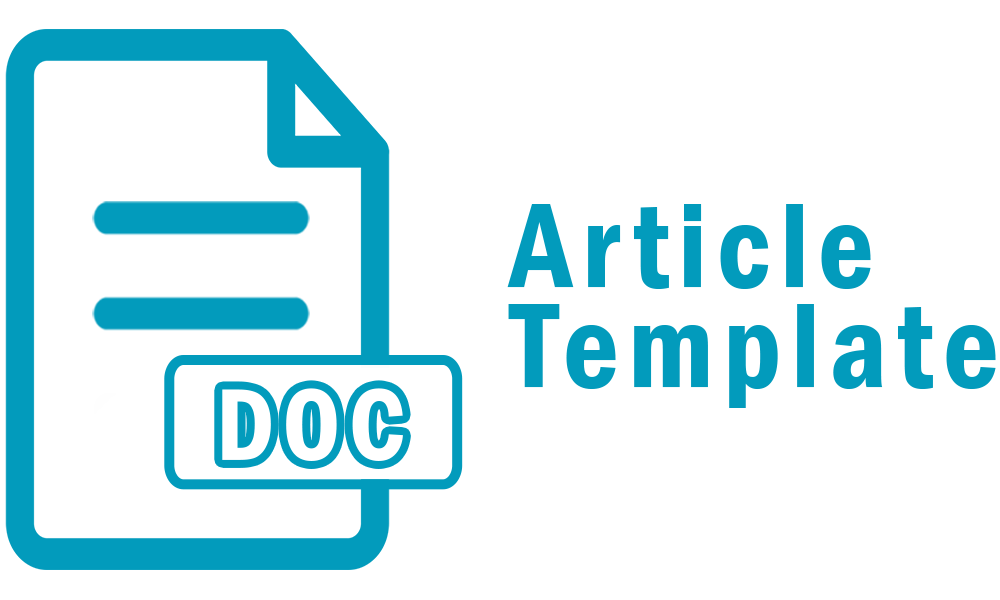Aim and Scope
This journal contains articles or studies on early childhood education, with a frequency of published twice a year in March and September, published by Undergraduate Program of Early Childhood Education Faculty of Teacher Training and Education, Muhammadiyah University of Ponorogo.
Focus
- Research on Early Childhood Education
- The Latest Theory of Early Childhood Education
Scope
- Developmental Psychology and Growth of Early Childhood (ECD)
- School Management of Early Childhood Education
- Instructonal Media of Early Childhood Education
- Early Childhood Classroom Management
- Early Childhood Learning
and another scope Relevant to Early Childhood Education
Section Policies
Artikel
Supplementary File
Peer Review Process
Editorial Process
Initial checks - New submissions go through an in-house quality control check to ensure adherence to our policies and requirements, including:
- ethical requirements for human and animal experimentation
- financial disclosures
- competing interests
- data deposition
Editor assignment - After a manuscript passes the quality control check, it is assigned to an Academic Editor according to relevant expertise. The Academic Editor is asked to evaluate the manuscript based on the Open Science Journal criteria for publication. Editors can choose to perform the evaluation on the basis of their own expertise, or assign external reviewers.
How long does it take to assign an Academic Editor? The length of time it takes to assign an editor may vary depending on editor availability or the time of year (e.g., winter or summer holidays).
Can authors suggest an Academic Editor? Authors can enter the names of suggested Academic Editors in the submission form, but this does not guarantee that the suggested editor will be assigned to the manuscript.
Will authors know which Academic Editor is assigned? The editor’s identity is anonymous until the manuscript receives a decision.
Peer review - The Academic Editor decides whether reviews from additional experts are needed to evaluate the manuscript. After agreeing to review a manuscript, external reviewers are typically granted 10 days to complete the assignment. We will follow up with late reviewers and keep authors informed if there are any delays.
Will authors know who is reviewing their manuscript? Reviewers’ identities are anonymous unless a reviewer indicates otherwise.
Can authors ask to exclude reviewers? Authors may enter the names of potential peer reviewers they wish to exclude from consideration in the peer review of their manuscript. The editorial team will respect these requests so long as this does not interfere with the objective and thorough assessment of the submission.
How many reviewers will a manuscript have? Our aim is that each submissions are evaluated by 2 external reviewers, but it is up to the Academic Editor to determine the number of reviews required.
Editorial decisions The final decision on a manuscript is made by the Academic Editor. The time to receive a decision depends on how long it takes for the editor to assess the reviews. When the decision is final, authors will receive the notification by email.
What are the possible decision outcomes? After evaluation, the Academic Editor chooses between the following decisions:
- Accept
- Minor Revision
- Major Revision
- Reject
Revisions - Authors who receive a decision of Minor Revision or Major Revision have 45 days to resubmit the revised manuscript.
Appeals - Authors may submit a formal appeal for rejected submissions. Appeal requests must be made in writing to jurnalindria@gail.com with the word “appeal” in the subject line. Authors must provide detailed reasons for the appeal and point-by-point responses to the reviewers' and/or Academic Editor's comments.
Publication Frequency
The publication frequency of the JURNAL INDRIA (JURNAL Ilmiah Pendidikan Prasekolah dan Sekolah Awal) journal is two times/year (March & September).
Schedule of Journal Indria | |||||||||||||||
|
Open Access Policy
Jurnal INDRIA (Jurnal Ilmiah Pendidikan Prasekolah dan Sekolah Awal) provides open access in principle to make research freely available to the public and will support the largest global knowledge exchange.
Archiving
This journal utilizes the LOCKSS system to create a distributed archiving system among participating libraries and permits those libraries to create permanent archives of the journal for purposes of preservation and restoration. More...








